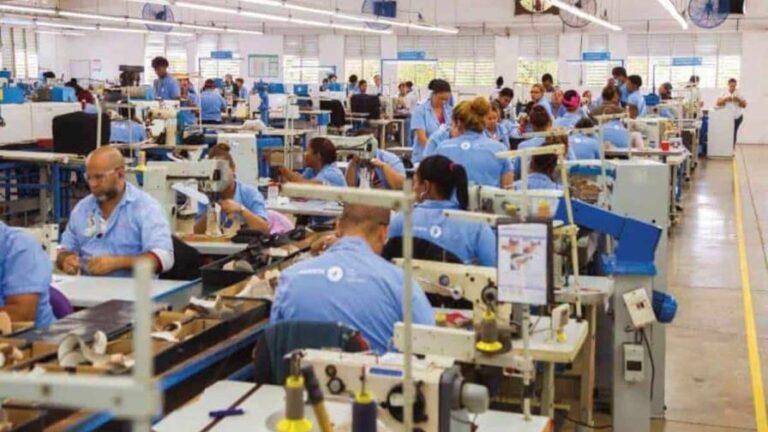
President Luis Abinader reported yesterday that the Government will hold a bilateral conversation with the Donald Trump administration on the imposition of a 10% tariff on Dominican exports.
When interviewed after participating in the National Industry Day and the 63rd anniversary of the Dominican Association of Industries (AIRD), Abinader said that the Government will evaluate the measure.
He pointed out that in, “in relative terms, we are in a favorable position because we are at the lowest level of tariffs.”
He said he is confident that the agreements established in the Free Trade Agreement between the United States, Central America and the Dominican Republic (DR-CAFTA) will be respected.
“We see some confusion among yesterday’s plans,indicating that perhaps 10% should not be applied to us as presented,” he said.
Speaking about the global and local economic context, economist Magín Díaz said that the country did not do so badly with the tariff, because we fall into the minimum category, but it is not good news, but those are the new rules of international trade.
He recalled that 75% of exports from free zones are directed to the United States, but we must wait for the reaction of the American consumer.
He says he is not pessimistic in the short term about the tariffs, but ideally, he would not have levied any tariffs, “but there are countries that are in a worse position than us.”
He recalled that a tariff is the combination of a consumer tax and a subsidy to the producer, but the same result can be obtained by subsidizing the producer without harming the consumer.
He said President Donald Trump wants to change the U.S. trade balance, but he won’t because tariffs don’t affect a nation’s trade balance.
Meanwhile, economist Roberto Despradel, who spoke on “Trade and industrial policy in the new international context,” said that more clarity on the measure is pending.
He believes we must wait for it to be assimilated within the United States and see how long it will last, based on the modifications of recent measures subsequent to their application.
He said the Dominican Republic faces the challenge to continue positioning itself as a relocation center close to the United States.
Source:


